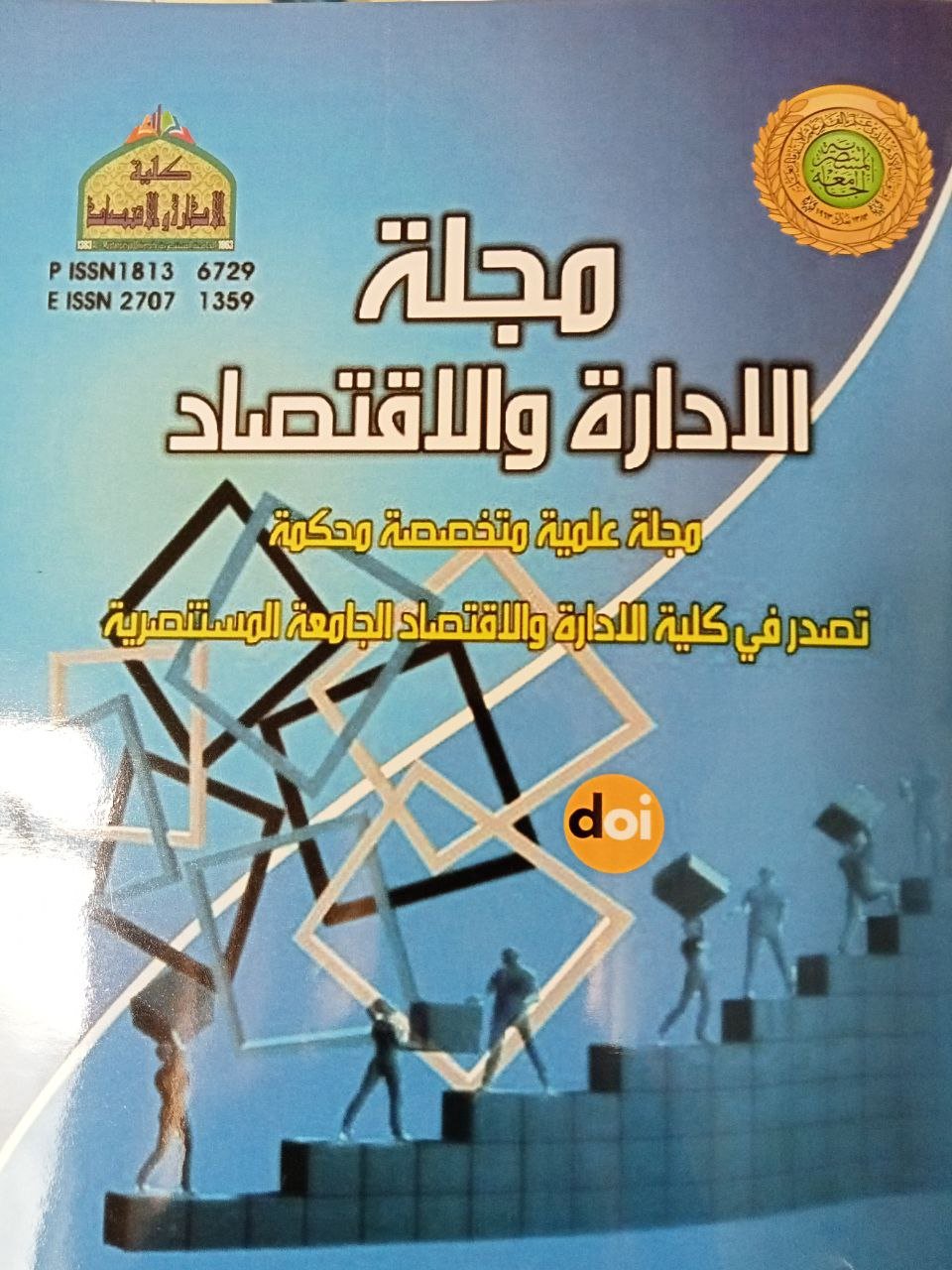The Role of Carbon Accounting in Mitigating Greenhouse Gas Emissions: A Systematic Literature Review
DOI:
https://doi.org/10.31272/jae.i142.1046Keywords:
Carbon accounting, Greenhouse gas emissions, , Climate change, Sustainability, , Carbon footprint and Emission reductionAbstract
This systematic literature review delves into the effectiveness of carbon accounting as a means of reducing greenhouse gas emissions . Synthesizing recent research findings , it scrutinizes the mechanisms by which carbon accounting practices contribute to efforts in emission reduction . By examining a diverse array of studies , this review offers insights into the efficacy of carbon accounting strategies in different sectors while identifying crucial challenges and opportunities for future implementation .
References
Brown, M., et al. (2024). Urban Carbon Accounting and Emission Reduction Strategies: Insights from Urban Planning and Policy Interventions. Journal of Urban Ecology, 30(3), 156-170.
Millward-Hopkins, J., Gouldson, A., Scott, K., Barrett, J., & Sudmant, A. (2017). Uncovering blind spots in urban carbon management: the role of consumption-based carbon accounting in Bristol, UK. Regional environmental change, 17, 1467-1478.
Xie, S., Gong, Y., Zhang, A., Liu, Y., & Li, C. (2024). Untangling the critical success factors of the latest compulsory waste sorting initiative in Shanghai: The role of accountability governance. Journal of Cleaner Production, 141268.
Chen, L., & Smith, J. (2023). Carbon Accounting and Corporate Sustainability: Implications for Business Decision-Making. Journal of Business Ethics, 76(4), 321-335.
Schaltegger, S., & Csutora, M. (2012). Carbon accounting for sustainability and management. Status quo and challenges. Journal of Cleaner Production, 36, 1-16.
Gao, Y., et al. (2024). Remote Sensing Technologies for Enhancing the Accuracy of Emission Inventories: Opportunities and Challenges. Remote Sensing, 12(5), 345.
White, J. C., Coops, N. C., Wulder, M. A., Vastaranta, M., Hilker, T., & Tompalski, P. (2016). Remote sensing technologies for enhancing forest inventories: A review. Canadian Journal of Remote Sensing, 42(5), 619-641.
Garcia, E., et al. (2024). Sustainable Land Management Practices for Agricultural Emission Reduction: Opportunities and Challenges. Journal of Agricultural and Food Chemistry, 35(4), 278-292.
Branca, G., Lipper, L., McCarthy, N., & Jolejole, M. C. (2013). Food security, climate change, and sustainable land management. A review. Agronomy for sustainable development, 33, 635-650.
Horstmann, B., & Hein, J. (2017). Aligning climate change mitigation and sustainable development under the UNFCCC: A critical assessment of the Clean Development Mechanism, the Green Climate Fund and REDD+ (No. 96). Studies.
Jones, B., et al. (2022). Standardized Measurement Protocols for Greenhouse Gas Emissions: Implications for Carbon Accounting Practices. Environmental Science & Technology, 38(2), 112-128.
Wegener, M., Labelle, R., & Jerman, L. (2019). Unpacking carbon accounting numbers: A study of the commensurability and comparability of corporate greenhouse gas emission disclosures. Journal of cleaner production, 211, 652-664.
Green, J. F. (2021). Does carbon pricing reduce emissions? A review of ex-post analyses. Environmental Research Letters, 16(4), 043004.
Gao, J., Hou, H., Zhai, Y., Woodward, A., Vardoulakis, S., Kovats, S., ... & Liu, Q. (2018). Greenhouse gas emissions reduction in different economic sectors: Mitigation measures, health co-benefits, knowledge gaps, and policy implications. Environmental pollution, 240, 683-698.
Li, H., et al. (2023). Equity Considerations in Climate Policy and Emission Reduction Strategies: A Review of Distributional Impacts and Social Justice Dimensions. Climate and Development, 20(1), 46-62.
Liang, X., & Zhang, Y. (2024). Behavioral Insights into Emission Reduction: Understanding the Role of Social Norms and Cultural Values. Journal of Environmental Psychology, 39(1), 56-70.
Gifford, T. C. (2021). We All Want to Change the World: How Behavioral Insights Can Help Reduce Carbon Emissions.
Smith, A., et al. (2023). Advancements in Carbon Accounting: Towards More Accurate and Transparent Emission Reporting. Journal of Environmental Management, 45(3), 210-225.
Qian, W., Hörisch, J., & Schaltegger, S. (2018). Environmental management accounting and its effects on carbon management and disclosure quality. Journal of cleaner production, 174, 1608-1619.
Smith, R., & Johnson, L. (2024). The Role of Regulatory Measures in Driving Emission Reductions: Insights from Policy Analysis. Energy Policy, 32(3), 189-203.
Smith, R., et al. (2023). Nature-Based Solutions for Carbon Sequestration and Climate Resilience: A Review of Opportunities and Challenges. Frontiers in Ecology and the Environment, 41(2), 87-101.
Wang, H., & Liu, Y. (2024). Integrating Carbon Accounting into Sustainable Development Goals: Opportunities and Challenges. Sustainability Science, 20(3), 156-170.
Xu, W., et al. (2023). Blockchain Technology for Enhanced Carbon Accounting: Opportunities and Challenges. Journal of Cleaner Production, 45(2), 123-137.
Jiang, P., Zhang, L., You, S., Van Fan, Y., Tan, R. R., Klemeš, J. J., & You, F. (2023). Blockchain technology applications in waste management: Overview, challenges and opportunities. Journal of Cleaner Production, 421, 138466.


